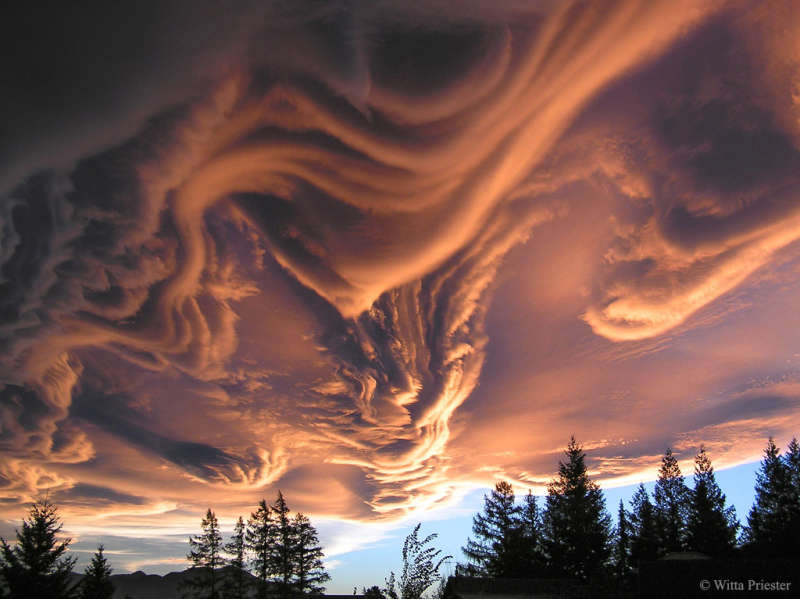Credit & Copyright: Witta Priester
Explanation:
What kind of clouds are these?
Although their cause is presently unknown, such unusual atmospheric structures,
as menacing as they might seem, do not appear to be harbingers of
meteorological doom.
Formally recognized as a distinct
cloud type only last year,
Asperitas
clouds can be stunning in appearance, unusual in occurrence, and are relatively unstudied.
Whereas most low cloud decks are
flat bottomed,
asperitas clouds appear to have significant vertical structure underneath.
Speculation therefore holds that
asperitas
clouds might be related to
lenticular clouds that form near mountains,
or mammatus clouds associated with thunderstorms,
or perhaps a foehn wind --
a type of dry downward wind that flows off mountains.
Such a wind
called the
Canterbury arch
streams toward the east coast of New Zealand's
South Island.
The featured
image, taken above
Hanmer Springs in
Canterbury,
New Zealand, in 2005,
shows great detail partly because sunlight illuminates the undulating
clouds
from the side.
1999 2000 2001 2002 2003 2004 2005 2006 2007 2008 2009 2010 2011 2012 2013 2014 2015 2016 2017 2018 2019 2020 2021 2022 2023 2024 2025 2026 |
Январь Февраль Март Апрель Май Июнь Июль Август Сентябрь Октябрь Ноябрь Декабрь |
NASA Web Site Statements, Warnings, and Disclaimers
NASA Official: Jay Norris. Specific rights apply.
A service of: LHEA at NASA / GSFC
& Michigan Tech. U.
|
Публикации с ключевыми словами:
clouds - облака
Публикации со словами: clouds - облака | |
См. также:
Все публикации на ту же тему >> | |
